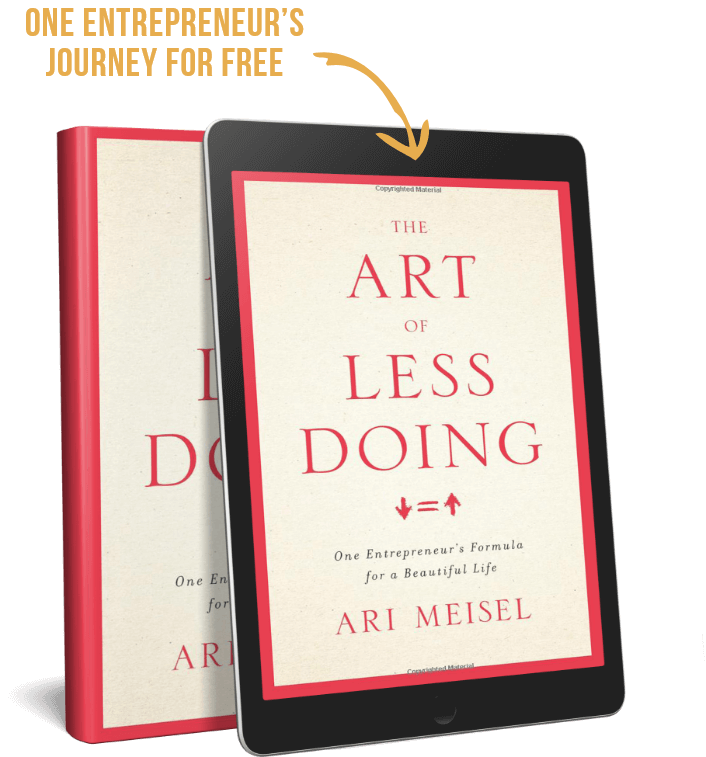Are you focusing on “Who” or “How” as a Founder?
Being a founder means figuring out how to make things happen.
You start with an idea, some great new thing that you want to make happen.
The first question your mind comes to is usually this: “How?”
How can I bring this product to life, turning an idea into something tangible?
How can I market this, getting it in front of the right people at the right time?
How can I get the funding I need?
How can I make this profitable?
There are a lot of “hows” involved here, and they’re all important and legitimate questions.
But in the midst of all these “hows,” founders miss another question that’s even more important: “who?”
Businesses are made up of people. Sure, some things can be automated here and there. Physical products can sometimes be made completely by robotic equipment in factories. Some kinds of business tasks can be partly or fully automated, like bookkeeping or data entry.
But people are the heart and soul of commerce, and as of today, there is no business in existence that doesn’t have people at its core.
“Who” Over “How”: Why Planning Should Start With People
Many of the things you need to plan and figure out as a founder have a huge “how” factor.
Examples include things like social media marketing, sales funnels, and other sales and marketing operations.
The processes are important, sure. But if you want to get anywhere with them, you need to make sure you have the right people first.
People with the right knowledge and skills to make things happen. Even the most well optimized and well planned processes can’t be put into place effectively without the right people running them.
Delegation is key.
Of course, it’s a little more complicated than just “delegate things to get more done.”
Delegation isn’t one thing, it’s more of a spectrum.
That spectrum runs from “do exactly what I say, verbatim,” at one end, to “do whatever you think is best, as long as it gets done” at the other.
Domino Delegation
My friend Joe Polish runs the Genius Network event.
His domain name is “TheFirstDomino,” and there’s a reason for that.
It’s because of how human connections create chains of causality that ultimately get things done.
Joe himself is “the first domino.” He’s the “first mover” in this scenario.
When you know Joe, and you need something done, you can get what you need through his network.
Joe passes it along to a resource you need, the second domino, which connects you to someone or something else, and so on.
Joe gets as much done as possible… while doing as little as possible himself.
As that First Mover, he also makes sure the people who come to him actually know what they need. He won’t hit the next domino until he’s sure.
He’ll ask things like, “Why do you think you need that?”, or suggest, “You actually don’t need that person, you want this person instead.”
As First Domino, Joe makes sure that when he falls, the next domino he hits will be the right one.
He does this by having a great selection of go-to people, the “second dominos.”
Find Your Go-To People
Founders are skilled innovators and business developers. You might also have some other relevant skills, depending on your professional background.
You might be a copywriter, or a web developer, or a social media marketer.
But your business will inevitably need things for which you’re not necessarily the best person.
That’s where your “go-to people” come in.
Rather than figuring out the “how” in areas you’re not familiar with, find the right “who,” the person who already has the “how” part down perfectly.
Tons of successful founders have these “go-to” people. A go-to app developer, a go-to copywriter, a go-to marketing consultant.
Knowing the right people is essential here. This type of “domino delegation” gets things done faster, more efficiently, and a lot more effectively than trying to wear all the hats yourself and figure out the “hows” independently.
Ask “Who,” Not “How”
Next time you have a problem, or you need something done, don’t ask “how.”
Ask “who.”
Don’t ask, “How can I construct an effective sales funnel?”
Ask, “Who do I know that knows sales funnels better than anyone else?”
This goes for just about everything. By using “domino delegation” for anything outside your core areas of expertise, you can focus a lot more effectively on what you are good at, while making sure all those other things get done well.




